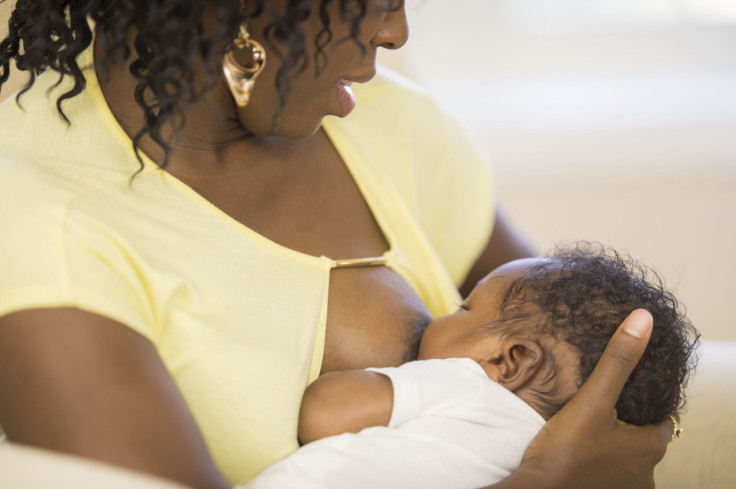WHO declares that babies should be exclusively breastfed for the first six months of their lives
WHO and UNICEF encourage businesses to allow breastfeeding mothers in the workplace while new mothers speak out about the pressure to breastfeed.

In recent years, exclusive breastfeeding has become increasingly popular amongst new parents. Since 2013, the prevalence of breastfeeding has increased to 48 per cent globally, according to the UN Children's Fund (UNICEF) and the World Health Organisation (WHO).
To honour World Breastfeeding Week, WHO has dedicated the time to encourage organisations to allow their female workers to be able to breastfeed in the workplace.
New initiatives for breastfeeding break rooms, paid maternity leave, and family-friendly policies have been put in place to encourage and support breastfeeding in the workplace.
These initiatives have been put in place to progress towards the global target of 70 per cent of babies being breastfed by 2030, UNICEF and WHO announced.
Catherine Russell, the Executive Director of UNICEF, and Tedros Adhanom Ghebreyesus, the Director General of WHO said in a statement this week: "Supportive workplaces are key. Evidence shows that while breastfeeding rates drop significantly for women when they return to work, that negative impact can be reversed when workplaces facilitate mothers to continue to breastfeed their babies."
Russell and Ghebreyesus added that increasing the number of workplaces that allow parents to continue breastfeeding after returning from maternity leave will also "generate economic returns" and reduce "the costs of hiring and training new staff".
However, many new parents have faced a huge amount of pressure from the health services and other parents, which has led them to inherently struggle with breastfeeding.
The NHS has already acknowledged that there are multiple challenges that breastfeeding proposes, and in 2018, the Royal College of Midwives, advised midwives to respect the mother's choice, if they had refused to participate in breastfeeding.
The Royal College of Midwives explained: "Some women cannot or simply do not wish to breastfeed."
The pressure to exclusively breastfeed is harming mothers. It’s great when it works. But when it doesn’t, despite months of heroic efforts, women are absolutely crushed w/ guilt and failure. Years later they still worry they’ve harmed their children. I fear we’ve gone too far.
— Dorothy Novick MD (@DorothyNovick) September 12, 2021
The challenges that breastfeeding can cause include breast pain and discomfort, a little milk supply, flu-like symptoms caused by mastitis, a large milk supply, thrush and others.
The Chief Executive of the Royal College of Midwives, Gill Walton, stated: "The RCM believes that women should be at the centre of their own care and as with other areas of maternity care, midwives and maternity support workers should promote informed choice."
"We know that every woman wants the best for her baby and we want to be able to empower our members to support women to be the best they can be and enable them to make decisions that are right for themselves and their babies," Walton concluded.
Although breastfeeding can be detrimental to both mother and baby, the breastfeeding guidance for new parents on the NHS webpage is still aligned with the advice from WHO. WHO declares that babies should be exclusively breastfed for the first six months of their life.
WHO also encourages mothers that infants should be breastfed on demand, as often as the child wants – day or night. WHO also recommends that parents should continue to breastfeed their children for up to two years of age and beyond.
Chrissy Teigen, an American model and wife of John Legend, spoke out about the pressure on new mothers to breastfeed their children. On Twitter, she wrote: "Ok I'm gonna say something and you all are definitely gonna make it a thing but here goes: normalize formula."
The British Pregnancy Advisory Service revealed that in 2023, less than 20 per cent of three-month-old babies are exclusively breastfed, with only one per cent of babies being exclusively breastfed at six months.
"Normalising breastfeeding is such a huge, wonderful thing... but I absolutely felt way more shame having to use formula because of a lack of milk from depression and whatnot," Teigen, who had previously suffered from a miscarriage at 20 weeks, continued.
© Copyright IBTimes 2025. All rights reserved.






















